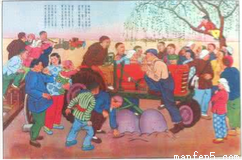题目内容
When other nine-year-old kids were playing games,she was working at a petrol station.When other teens were studying or going out,she struggled to find a place to sleep on the street.But she overcame these terrible setbacks to win a highly competitive scholarship and gain entry to Harvard University.And her amazing story has inspired a movie,“Homeless to Harvard: The Liz Murray Story”,shown in late April.
Liz Murray,a 22-year-old American girl,has been writing a real-life story of willpower and determination.Liz grew up in the shadow of two drug-addicted parents.There was never enough food or warm clothes in the house.Liz was the only member of the family who had a job.Her mother had AIDS and died when Liz was just 15 years old. The effect of that became a turning point in her life.Connecting the environment in which she had grown up with how her mother had died,she decided to do something about it.
Liz went back to school.She threw herself into her studies,never telling her teachers that she was homeless.At night,she lived on the streets.“What drove me to live on had something to do with understanding,by understanding that there was a whole other way o f being.I had only experienced a small part of the society,” she wrote in her book Breaking Night.
She admitted that she used envy to drive herself on.She used the benefits that come easily to others,such as a safe living environment,to encourage herself that “next to nothing could hold me down”.She finished high school in just two years and won a full scholarship to study at Harvard University.But Liz decided to leave her top university a couple of months earlier this year in order to take care of her father,who has also developed AIDS.“I love my parents so much.They are drug addicts.But I never forget that they love me all the time.”
Liz wants moviegoers (who often see films) to come away with the idea that changing your life is “as simple as making a decision”.
1.In which order did the following things happen to Liz?
a.Her mother died of AIDS.
b.She worked at a petrol station.
c.She got admitted into Harvard.
d.The movie about her life was put on.
e.She had trouble finding a place to sleep.
A. b,a,e,c,d B. a,b,c,e,d
C. e,d,b,a,c D. b,e,a,d,c
2.The main idea of the passage is ________.
A. how Liz managed to enter Harvard University
B. what a hard time Liz had in her childhood
C. why Liz loved her parents so much
D. how Liz struggled to change her life
3.What actually made her go towards her goal?
A. Envy and competition.
B. Willpower and determination.
C. Decisions and understanding.
D. Love and respect for her parents.
4.When she wrote “What drove me to live on ...I had only experienced a small part of the society”,she meant that
_______.
A. she had little experience of social life
B. she could hardly understand the society
C. she would do something for her own life
D. she needed to travel more around the world



 ocuments 6. I bring back from the office so that I can be ready for the next 7.()day) work. I get to bed around midnight8.my wife and children are already asleep.
ocuments 6. I bring back from the office so that I can be ready for the next 7.()day) work. I get to bed around midnight8.my wife and children are already asleep.